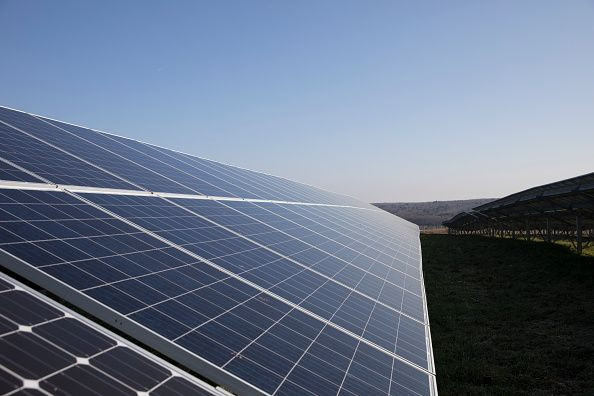Energy News: Murkowski, Manchin Join Forces To Modernize Energy Laws

KEY POINTS
- The American Energy Innovation Act combines 50 bills handled by the Senate Eenrgy and National Resources Committee
- Environmental groups say the bill does not do enough to address carbon pollution
- The bill also address cyber- and grid security
Sens. Lisa Murkowski, R-Alaska, and Joe Manchin, D-W.Va., on Thursday introduced a massive energy bill that seeks to modernize domestic energy laws and strengthen national security, focusing on new technology to make cars and trucks more fuel efficient.
The 550-page American Energy Innovation Act could hit the Senate floor as early as next week.
The bill addresses carbon pollution and focuses on energy efficiency, renewable energy, energy storage, advanced nuclear power, industrial and vehicle technologies, mineral security, cyber- and grid security and modernization, and workforce development.
“This bill is our best chance to modernize our nation’s energy policies in more than 12 years,” Murkowski said in a press release. “By working together to pass it into law, we can promote a range of emerging technologies that will help keep energy affordable even as it becomes cleaner and cleaner.”
Manchin said the bill makes “a down payment on emissions-reducing technologies, reassert[s] the United States’ leadership role in global markets, enhance[s] our grid security and protect[s] consumers. Importantly, this bill will connect energy-producing communities, including in states like West Virginia and Alaska, to new markets and job opportunities while laying the groundwork for the Department of Energy to advance new and necessary critical emissions-reducing technologies.”
Environmental groups already are complaining the package does not do enough to address climate change and fails to set carbon reduction targets.
The Sierra Club said the bill’s mining provisions would damage the environment.
Bills being drafted in the House would commit to carbon neutrality by 2050.
The Senate measure consolidates 50 bills handled by the Senate Energy and Natural Resources Committee last year, including some bills sent over by the House, and co-sponsored by 60 lawmakers.
The bill seeks to keep energy affordable while still spurring innovation. It relies on technology-oriented approaches rather than mandates and tax increases to make energy production and use cleaner, focusing on renewable energy and shoring up supplies of minerals for battery storage.
“Innovation helped America overcome its foreign oil dependence but our mineral, cyber and grid security all remain critical threats. AEIA recognizes that a supply chain disruption or a cyberattack, particularly on the electric grid, could have devastating consequences and takes meaningful steps to protect Americans against them,” a summary of the bill notes.
© Copyright IBTimes 2024. All rights reserved.






















